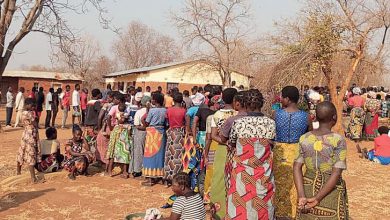Fiscal deficit, expenses rising
Ballooning expenditure has pushed the country’s fiscal deficit from an average of three percent of the gross domestic product (GDP) over 2010/19 to around 10 percent of GDP over the past four years, published World Bank data shows.
According to the multilateral bank, the fiscal outturn reflects a persistent pattern of budgetary overruns, whereby actual expenditures consistently exceed the levels set in both the initial budget and in its mid-year revision.

“In the past six fiscal years, the most pronounced spending increases were recorded in capital expenditure [with a rise equal to 3.4 percentage points (ppts) of GDP], wages and salaries (2.4ppts) and interest payments (3.9 ppts)].
“This underscores the magnitude of the fiscal consolidation challenge, as the latter two categories are rigid in nature and cannot be deferred.”
Ironically, salary adjustments and recruitments have led to an increased wage bill by 20 percent to K1.5 trillion in the 2025/26 financial year, up from the from K1.3 trillion in the previous year, according to published Ministry of Finance and Economic Affairs data.
The increase is also coming at a time other recurrent expenditure have registered a 42 percent increase to K4.5 trillion in the current fiscal year from.
In an interview on Wednesday, Centre for Green Economy lead Velli Nyirongo observed that when a country allocates such a large share of revenue towards recurrent and statutory obligations, there is little left for infrastructure, development projects, or essential social services.
He said: “This imbalance inhibits economic growth and leaves limited fiscal space to respond to economic shocks or invest in long-term development.
“If left unchecked, the growing wage bill, recurrent expenditure, and debt servicing commitments may ultimately threaten government solvency and the sustainability of essential public services, hampering Malawi’s prospects for durable economic growth and poverty alleviation.”
Statutory expenditures have consumed an average of 93 percent of domestic revenue over the past four fiscal years.
According to the World Bank, a large share of statutory expenditure, also called rigid expenditures, includes compensation of employees, interest, pension and gratuity and subventions which are eating into domestic revenue, with debt-service obligations alone rising from 28 percent of domestic revenue in 2020/21 financial year to an estimated 43 percent in 2024/25 financial year.
Former finance minister Joseph Mwanamvekha earlier observed that the rising rigid expenditures means development projects and services to critical sectors will have to be accommodated within the remaining balance of seven percent of the budget.
He said: “This is a serious matter and is not healthy as it deprives Malawians of development and public services.”
In his 2025/26 Budget Statement, Minister of Finance and Economic Affairs Simplex Chithyola-Banda conceded that the country’s budget is highly skewed towards the mandatory expenditures on interest bills for past borrowing and consumption, wages and salaries and social benefits to protect the most vulnerable segments of our population.
“This has tended to leave few resources for government service delivery and development projects,” he said.
Malawi’s public investment in infrastructure has been negligible in the past two decades, averaging about 4.18 percent over a 20-year period between 1998 and 2017, according to the World Bank.
At 4.18 percent, this is lower than Mozambique at 10.7 percent, Zambia’s 4.82 percent and Tanzania at 4.21 percent.
Statutory obligations entail institutional, legal, or contractual requirements or other constraints that limit policy maker’s ability to alter the size and composition of the budget, at least in the short term.





